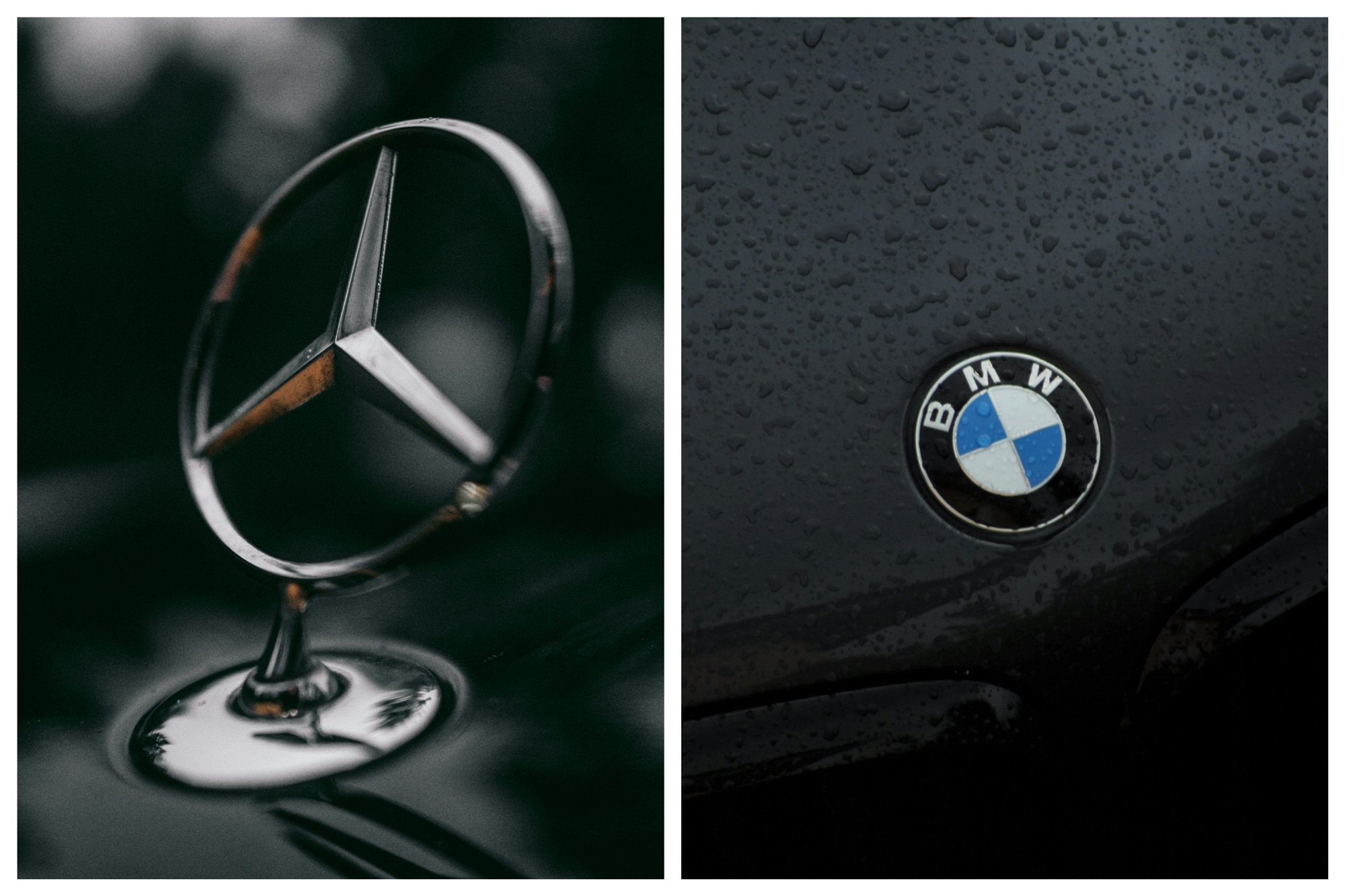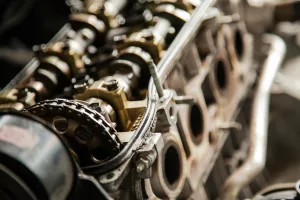When considering luxury vehicles, BMW and Mercedes-Benz are two brands that come up as top contenders. Both German automakers are known for their performance, innovation, and style. However, when it comes to reliability, the debate between BMW and Mercedes-Benz continues. This article dives deep into comparing the reliability of BMW and Mercedes-Benz vehicles, considering various aspects such as build quality, repair costs, common issues, and long-term dependability.
1. Reliability Overview: BMW vs. Mercedes-Benz
BMW’s Approach to Reliability
BMW focuses heavily on performance, often marketing itself as “The Ultimate Driving Machine.” With this focus comes a more complex design, particularly in the engine and suspension systems. While BMW produces some of the most enjoyable cars to drive, the emphasis on performance can sometimes come at the expense of reliability. BMWs are engineered for precision, which can lead to more frequent repairs as the complexity of their systems increases.
Mercedes-Benz’s Approach to Reliability
Mercedes-Benz is known for blending luxury and performance with a focus on comfort, safety, and innovation. The brand has a history of producing well-engineered vehicles, though in recent years, the push toward advanced technology and complex electronic systems has sometimes resulted in reliability issues. Traditionally, older Mercedes models were famed for their durability, but newer models can face challenges due to their cutting-edge technology.
2. Reliability Rankings and Consumer Reports
J.D. Power and Consumer Reports Data
To objectively compare reliability, J.D. Power’s Vehicle Dependability Study (VDS) and Consumer Reports’ reliability rankings offer insights based on real-world data:
- J.D. Power: According to recent J.D. Power studies, neither BMW nor Mercedes-Benz consistently ranks at the very top for vehicle dependability. Both brands typically fall into the middle range compared to other luxury brands. BMW has slightly improved in recent years, while Mercedes-Benz has had more variability, particularly in models with extensive electronic systems.
- Consumer Reports: Consumer Reports’ reliability data, based on surveys from car owners, indicates that both BMW and Mercedes-Benz have models that can be hit or miss in terms of reliability. On average, BMW tends to rank a bit higher than Mercedes-Benz in terms of overall reliability, but this varies significantly across different models.
Long-Term Reliability
When considering long-term reliability, both brands present a mixed picture. BMW models are known for delivering strong performance for the first 100,000 miles but may require more frequent and costly repairs as they age. Mercedes-Benz vehicles, especially those from the E-Class and S-Class series, have a reputation for being durable but can suffer from costly electrical and air suspension problems over time.
3. Common Issues: BMW vs. Mercedes-Benz
BMW Common Issues
BMWs are often praised for their performance, but they are also known for several common issues:
- Cooling System Problems: BMW engines are prone to issues with the cooling system, particularly with components like water pumps, thermostats, and radiators.
- Oil Leaks: Older BMW models are notorious for oil leaks from gaskets, valve covers, and oil pans.
- Electrical Problems: As BMWs rely heavily on electronics, owners often report problems with sensors, infotainment systems, and battery drain.
- Suspension Wear: BMW’s performance-oriented suspension systems can wear out quickly, leading to issues like worn control arms and bushings.
Mercedes-Benz Common Issues
Mercedes-Benz vehicles are generally known for their durability, but they also have some commonly reported problems:
- Electronic Issues: The advanced infotainment and driver-assistance systems in newer Mercedes models are prone to malfunctions, especially in models like the C-Class and E-Class.
- Air Suspension Failures: Many Mercedes models feature air suspension systems that are prone to leaks and failures, leading to costly repairs.
- Transmission Issues: Some Mercedes vehicles, particularly older models, experience issues with their automatic transmissions, such as rough shifting and delayed engagement.
- Rust Problems: Although more common in older models, rust has been a known issue for Mercedes-Benz vehicles, particularly in regions with harsh winters.
4. Cost of Ownership and Maintenance
Repair and Maintenance Costs
Both BMW and Mercedes-Benz are luxury brands, and with luxury comes higher maintenance and repair costs. However, there are differences between the two:
- BMW: BMW vehicles tend to require more frequent maintenance and repairs. On average, BMW has slightly higher annual repair costs than Mercedes-Benz. According to RepairPal, the average annual repair cost for a BMW is around $968.
- Mercedes-Benz: Mercedes vehicles also come with high repair costs, though slightly less frequent than BMW. The average annual repair cost for a Mercedes-Benz is approximately $908, which is marginally lower than BMW but still high compared to non-luxury brands.
Parts Availability and Complexity
Both brands use specialized parts that can be expensive. BMW’s parts, particularly for high-performance models, are often more costly due to their complexity and precision engineering. Mercedes-Benz, while also using high-quality parts, tends to have better parts availability and aftermarket options, potentially making repairs slightly more affordable.
5. Key Model Comparisons
BMW 3 Series vs. Mercedes-Benz C-Class
The BMW 3 Series and Mercedes-Benz C-Class are direct competitors in the compact luxury sedan segment.
- BMW 3 Series: The 3 Series is renowned for its driving dynamics and performance, but reliability can be hit or miss, especially with models equipped with turbocharged engines. Cooling system issues and oil leaks are common in older models.
- Mercedes-Benz C-Class: The C-Class offers a more balanced approach with a focus on luxury and comfort. While generally reliable, the C-Class has faced issues with electronic systems, and older models have been known for transmission problems.
BMW X5 vs. Mercedes-Benz GLE
In the luxury SUV segment, the BMW X5 and Mercedes-Benz GLE (formerly ML-Class) are popular choices.
- BMW X5: The X5 is known for its sporty handling and powerful engines but has had frequent issues with air suspension, engine cooling systems, and electronic glitches.
- Mercedes-Benz GLE: The GLE is designed for comfort and utility, with more focus on luxury than performance. It has had problems with air suspension and electrical systems, though it tends to require fewer repairs than the X5 over time.
6. Warranty and Service Programs
Both BMW and Mercedes-Benz offer similar warranty coverage, typically with a 4-year/50,000-mile basic warranty. However, BMW also includes 3 years or 36,000 miles of free maintenance, which can be a valuable perk considering the high cost of servicing luxury vehicles. Mercedes-Benz does not include free maintenance, but they offer prepaid maintenance plans that can help reduce long-term costs.
7. Conclusion: Which Brand Is More Reliable?
When it comes to reliability, neither BMW nor Mercedes-Benz is without flaws. Both brands produce high-quality vehicles, but they come with the complexities and costs associated with luxury engineering. On balance:
- BMW offers superior driving dynamics and performance but tends to have higher repair frequencies and costs, particularly as the vehicle ages. While newer models have improved in reliability, older BMWs require diligent maintenance to avoid costly issues.
- Mercedes-Benz offers slightly better reliability overall, particularly in terms of fewer repairs and more durable components in non-performance models. However, the advanced electronics and air suspension systems can still pose significant challenges in newer models.
In conclusion, if reliability is your primary concern, Mercedes-Benz holds a slight edge over BMW. However, your choice should ultimately depend on your specific needs, whether you prioritize driving performance (BMW) or a balance of luxury and dependability (Mercedes-Benz). Both brands have made significant strides in recent years, but Mercedes-Benz offers a more consistent reliability record across its lineup, making it the better choice for long-term dependability in the luxury segment.




